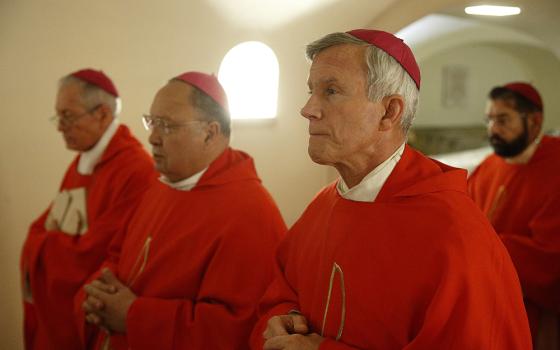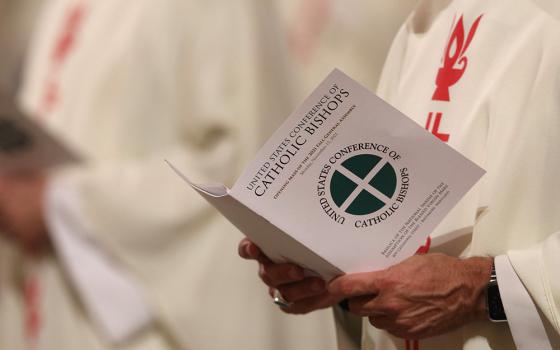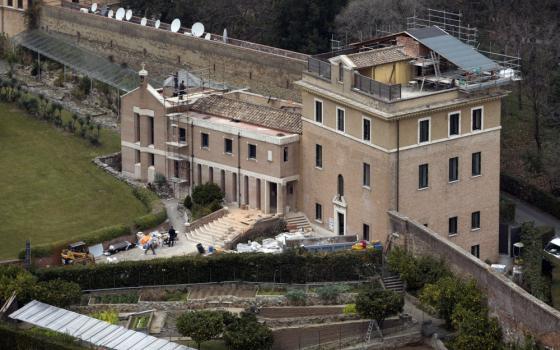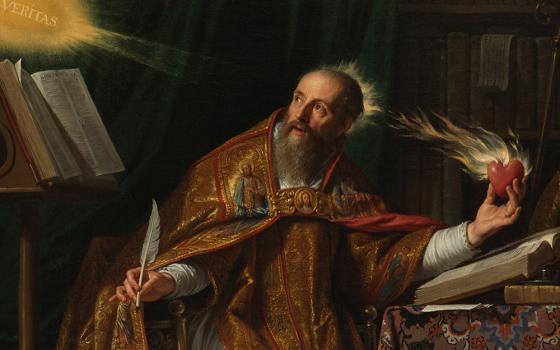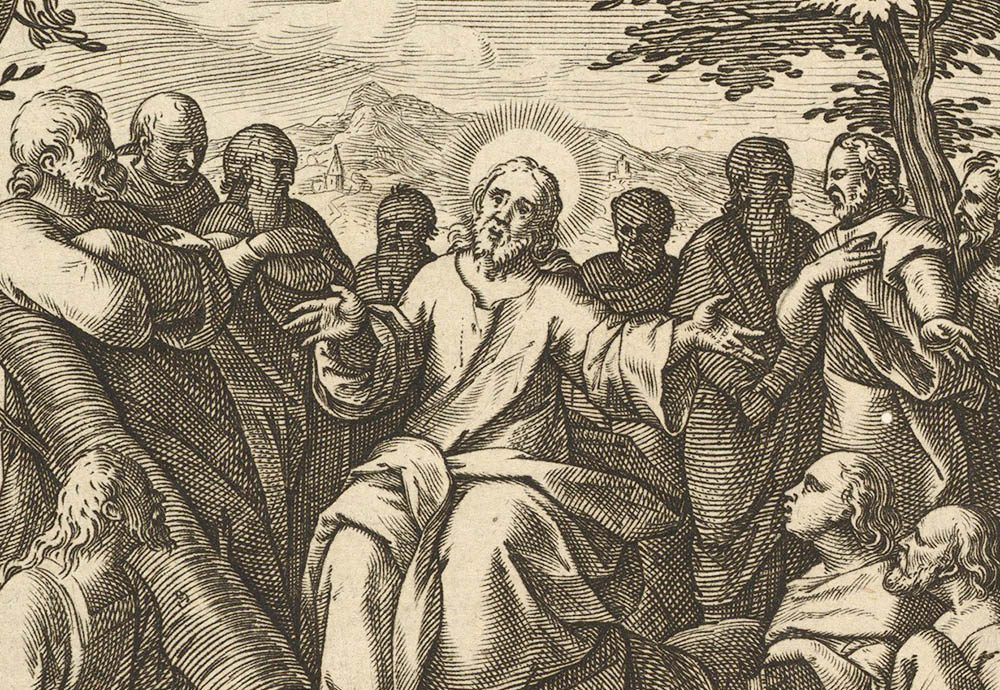
"The Eight Beatitudes" (detail, circa 1578) by Hendrick Goltzius (Metropolitan Museum of Art)
This fifth Sunday in January marks the last days of the first month of the new year. With every new year comes new possibilities, new opportunities, new dreams and new hopes and desires for a more equitable and just world for all creation.
Despite the dawn of a new year, competition and conflict continue to weaken, and sometimes even destroy, the bonds of human relationships. Technofeudal lords jockey for position in the global market as oligarchs bankroll private interests, all for the sake of creating economic empires of power, prestige and control that leave many people disenfranchised and distanced from what is really going on behind the scenes.
This Sunday's readings offer encouragement to the disenfranchised, define the interests of the divine one, and present a way forward for those seeking to live alternatively to the dominant social model of power, prestige, status, control and the colonization of others.
The reading from the book of Zephaniah is a clarion call to the humble of the earth, to those among us who are disenfranchised. They are not to embrace humiliation and the feeling of powerlessness. Rather they need to seek justice and truth while remaining rooted in the divine presence who is the source of virtue and peace.
The reading from the First Letter to the Corinthians reinforces this message. Divine favor rests with and empowers those having no status and prestige, who live a life of humility, acknowledging that all is a divine gift.
The responsorial psalm presents a portrait of the divine and an implied description of holiness and godliness. The divine one favors the oppressed, those in need and those who suffer. This one actively acts on their behalf to break the bonds of captivity while "waking" others to an understanding of the root causes of their disenfranchisement and suffering. This one safeguards the "other" and sustains unprotected classes.
Holiness and godliness, then, entails standing with the margins while working toward their justice. Holiness can never be separated from mission.
Finally, as part of the Sermon on the Mount, the Gospel reading from the book of Matthew showcases a narrative that presents a way to live alternatively.
This reading, also known as the Beatitudes, features Jesus as having an agenda he wants to put forward during a time of great ideological variety, when Jews, Sadducees, Pharisees and Essenes competed for followers. Each sect had its own approach to Judaism and vied for allegiance. While they all believed in the Torah, they disagreed about details of observance.
Aside from the Jewish population, various representatives of the Roman government strived for power. Priests collected tithes and, as representatives of the Roman government, collected taxes. Zealots wanted to throw off the yoke of Rome.
Clearly, Jesus was not the only voice speaking against the status quo. The Sermon on the Mount, however, was tantamount to a mission statement for the religious organization Jesus inspired.
Advertisement
At one level, the Sermon on the Mount appears to be a talk in which Jesus inspires his listeners to do good deeds, to live simply, and to behave honorably. When we view the oration in the context of its first-century times, however, we can understand how it also is part of social conflict.
Political and economic conditions were oppressive; resources were scarce; power imbalances existed; values were challenged; several sects tried to win the hearts, minds and loyalties of the people as many Jewish leaders cooperated with Roman rulers; and a variety of Jewish sects rivaled others for power and influence. These conditions are all situations that contributed to social conflict.
Many of these conditions and similar ones exist today. The Beatitudes provide a vision for life lived alternatively to power, prestige, status and the resultant competition and conflict. They showcase a way to handle social conflict that preserves the dignity and well-being of all while establishing and sustaining peace.
The entire Sermon on the Mount, and especially the Beatitudes, functions as a polemic against the ways and attitudes of the Roman Empire. As such, the Gospel is also, however, an invitation to personal and communal transformation for all, where differences are honored and the true exercise of power leads not to conflict and division but to unity and peace.
In sum, will we who struggle, like the rest of humanity, with the crisis of identities, choose self-serving power, prestige and status, or will we set foot on a different, alternative path characterized by humility and blueprinted by the Beatitudes?
This alternative path and the divine one's choice for those on the margins offer us much needed hope.

